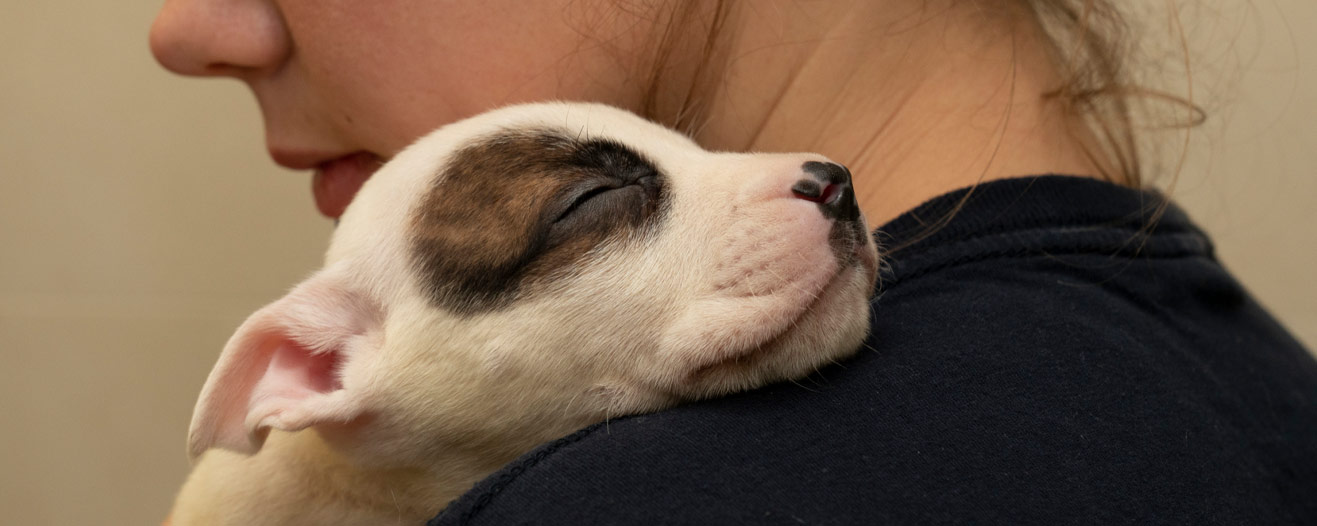- Find a Pet
- Advice and Welfare
- Ways to Give
- Get Involved
- What We Do
- Search
- My RSPCA
- Report a concern
- Gift in Wills
-
Colour modeVivid Calm
- Home
- Advice and welfare
- Pets
- Dogs
- Health and welfare
- Vaccinations
Puppy vaccinations - what you need to know
Vaccinating your puppy is one of the most important things to do in your first few weeks as a dog owner. Regular vaccinations help puppies grow into dogs who remain free of infectious diseases, and also prevents them from passing nasty diseases on to other animals.

When puppies need to be vaccinated
Puppies are typically vaccinated at eight and ten weeks (although they can be vaccinated as early as four-six weeks) with the second dose usually being given two to four weeks later. Speak to your vet about the best timings.
Your puppy will then require a booster vaccination at 6 or 12 months. As your puppy grows into an adult dog it's important to ensure you visit the vet and keep your dog's vaccinations up to date.
The diseases they protect against
Vaccinations protect your pup from the following nasty diseases:
- Canine distemper
- Canine parvovirus
- Kennel cough
- Leptospirosis
- Parainfluenza
Who can vaccinate my puppy?
When you first get your puppy, the first thing you should do is register with your local vets who will be able to carry out the vaccinations your puppy needs. Your vet is always the best source of information on the vaccinations and treatments your new puppy will need.
Cost of puppy vaccinations
The costs can vary depending on what vaccines are given and when. But the costs are usually far less than treatment for the diseases they prevent. We might be able to help with veterinary costs if you meet our eligibility criteria.
How long are vaccinations effective?
Different vaccines last for different lengths of time, as immunity can weaken. Your vet will provide you with a vaccination record, which you'll need to keep safe.
What if I rehomed my puppy from a charity or animal home?
If you adopt a puppy or dog from us, we'll have already given them initial vaccinations. That's one of the reasons we charge an adoption fee when we rehome an animal. You should still register with your vet, and talk to them about additional vaccines in the future.
Start your search for a puppy today or take a look at our puppy buying guide for advice on getting a healthy, happy puppy from a breeder. When you're ready to bring your pup home, we have lots of great tips about the puppy buying process to help you welcome your new pup to the family, and you can also learn more about caring for your puppy.



